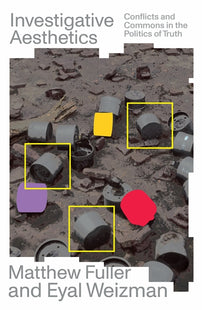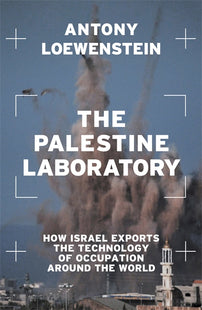Palestine Uncensored: Testimonial 1
This is the first testimonial in our blog series, Palestine Uncensored: Diaries of Censorship. Hannah Elsisi documents the impossibility of keeping up with the levels of censorship in the West and Israel's mounting atrocities in Gaza in an email.

October 26, 2023
Dear X,
Apologies for brevity as I’m on the tube.
I saw your email last week, and reminder today. I was already working on a piece which I’d have happily given to your publication, but then events — in step with hegemonic discourse — have escalated at such dizzying speed that I am at a loss. On the one hand, I sit in/on a slew of committees/networks and the avalanche of cases of colleagues and students threatened has beggared belief and precluded sleep. On the other, even within these committees, the consensus has shifted daily on the kind of discourses and actions we can mount. In the week since you wrote, we went from critical discussions on regurgitating Home Office languages around proscribed terrorist organisations (Hamas or other), to having a University Law School event cancelled by Eventbrite within an hour of its publication, where the event was explicitly titled “The History of Non-Violent Palestinian Resistance”. As if such a history, no matter the grade of vinegar used to cleanse it, were even possible.
Plenty of insightful and incisive essays have circulated; each so, and more so, censored as to put the censor’s scissors on gilded display. Yet, there is one concrete slab that nobody wants to see: a long, tall, thick wall that divides peoples into sovereign nationals and subjects of genocide.
And this is to say nothing of the left and Labour’s prevarications over everything from the difference between a pause and a pausette in ethnocide or the appropriate fontsize for the CONDEMNATION of Gaza’s only quasi-military chance (at 1 to 300 chance here indexes the dice-rolling not fighting sense of the term). This as well as the deeply depressing realities of activism from and within aspirational middle-class positions (like my own) and amongst my dearest: friends, comrades, colleagues and mentors … An activism that perforce fails so long as it is hitched to the wagon and stitched to the fabric of racist and capitalist institutions and frameworks. And yet we are constantly surprised. This shock is not philosophical of course; as a genre of denial and suspension of disbelief; it is, as per Walter Benjamin, untenable.
As an aside, would you be willing to host a go-fund for the suspended tube driver? I tried to reach the organisers of the petition to no avail. But it seems to me that we are so atomised and alienated (outside of the tiny space-times graciously allocated by the Met), that we must begin to demonstrate that if repression is a lonely path, it need not be walked in poverty. I am reminded of the €1m cadeau from the good people of France for the killing of the teenager Nahel this summer.
All of this to say, please tell X that I have a draft that is not keeping up with the passage of events and the hasbara machine; that I am unwilling to put anything out there that makes a mockery of Palestinian struggle past and present, and, most importantly, future by pretending that settler colonialism has ever, or can ever, anywhere, be overcome without rebellion, uprising and armed insurrection; and that between the troika that is Egypt, the Gulf and Britain, a carceral nightmare looms. If the draft can see the light of day, I promise you’ll have it. In the interim, feel free to publish this letter as a bridge between the loss of language and the flood of language lapping at the levees beneath the Aqsa Flood.
Yours,
Hannah
Read Testimonial 2 in our Palestine Uncensored series →
[1] Nakhod bel gazma, is to take a shoe to the head – in daily parlance it describes dynamics of patriarchal and military power in several Arab states: lopsided and seemingly open-ended. Nahal Oz, is the closest settlement to the fence besieging Gaza and was one of the focal points of 7 October’s al-Aqsa Flood. The term ‘Nahal’ refers to the military unit that established the first frontier settlements after the war of 1948. Nahal settlements started life as military outposts and were supposed to turn into civilian villages. But, as Weizman writes, “the transformation is never complete, and residents are expected to double as defenders when the time comes.” This is connected to Israeli Supreme court’s 1978 decision that settlements are legal and do not contravene the Geneva and Hague conventions precisely because they are temporarily required for military and security purposes, and therefore not for permanent civilian settlement. Earlier, in 1956, a group of pre-hamas Palestinians had crossed what was then the ditch encircling Gaza and killed a security officer in the attempt to enter and retake their land. The attempt failed but Moshe Dayan, the Israeli Chief of General Staff at the time, didn’t blame them for trying. As he put it, it had been “Eight years they sat in the refugee camps of Gaza, and saw in front of their eyes how we turned the lands and the villages in which they and their forefathers once dwelled into our homeland.” It has been 75 years of sitting and seeing with their eyes, knowing the world is watching too.
[book-strip index="1"]


